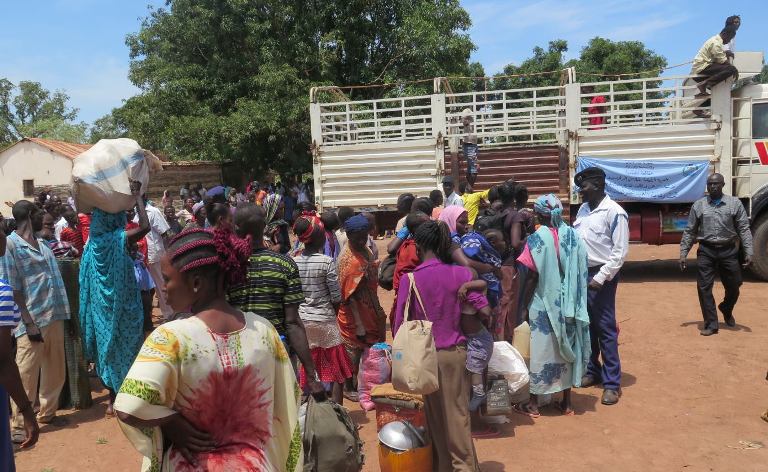S. Sudan displacement crisis still desperate after peace deal: report
September 3, 2019 (JUBA/NAIROBI) – Millions of South Sudanese remain displaced as the country continues to face a humanitarian crisis and people fear that peace may not last a year after the signing of the revitalized accord, a new report has revealed.

The report, entitled No Simple Solutions: Women, Displacement and Durable Solutions in South Sudan, is by Oxfam, Norwegian Refugee Council (NRC), Care Foundation, Danish Refugee Council, and South Sudanese organizations, Nile Hope and Titi Foundation highlights the experiences of women in transit and the conditions they need in order to return home.
It says women, who lead the vast majority of displaced households, may be especially vulnerable, including facing the threat of sexual violence.
“While some women have begun returning to South Sudan, many are not going back to their homes but seeking a safer and better place to live,” partly reads the report released on Wednesday.
After five years of brutal conflict, more than seven million South Sudanese – over half the country’s population – are in need of humanitarian assistance.
Homes, schools and hospitals have been destroyed and it will take years for essential infrastructure and services to recover.
“Since the signing of the revitalized peace deal, armed clashes between parties have reduced, bringing tentative hope to many. But because of the slow implementation of the deal, many women told us they are still not sure if lasting peace is at hand,” said Elysia Buchanan from Oxfam South Sudan.
The civil war also fueled the rise of sexual violence, including rape as a weapon of war, and the abduction of women and girls who were forced into sexual slavery.
With the sheer scale of the crisis, and endemic levels of sexual and gender-based violence, a South Sudanese woman activist quoted in the report warned humanitarian agencies against rushing to support people to return home.
“This would be like throwing people from one frying pan to another. Humanitarian actors should take things slow, until refugees and internally displaced people can move themselves,” it stressed.
Due to the ongoing humanitarian crisis, people returning from neighboring countries often find themselves in more difficult conditions than when they were displaced, including struggling to find somewhere to live.
“Time and again, women spoke to us of the challenges they face in returning to their homes. They make the journey back, only to find that their houses and properties were completely destroyed, or had already been occupied by strangers, sometimes soldiers,” said Connolly Butterfield, the Protection and Gender Specialist of NRC.
“Some of the women said that if they try to reclaim their properties, they have no means of support. They are more likely to be threatened or exposed to physical or sexual assault,” she added.
It is estimated some 60 percent of displaced South Sudanese have been displaced more than once, and one in 10 have been displaced more than five times.
The report urged humanitarian agencies to do more help to people caught in the endless cycle of movement.
“After years of conflict, it will take time for the country to recover. The warring parties who signed the peace deal must ensure that the agreement leads to lasting changes on the ground, not just in terms of security, but also in terms of improving the lives of the South Sudanese people,” said Martha Nyakueka, the Gender and Protection Coordinator of the national NGO Nile Hope.
South Sudan descended into civil war in mid-December 2013 and the ongoing conflict has created one of the fastest-growing refugee crises in the world.
In September 2018, South Sudan’s conflicting parties signed a final peace deal in Addis Ababa after negotiations brokered by the Sudanese government and mandated by regional nations.
(ST)

